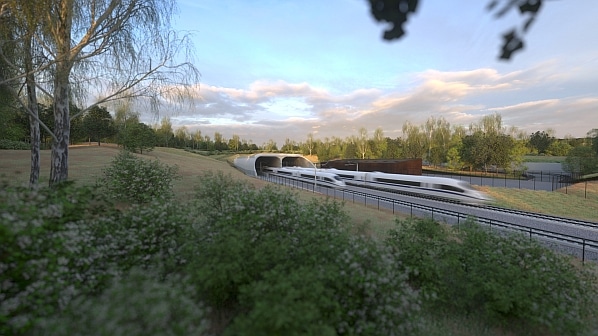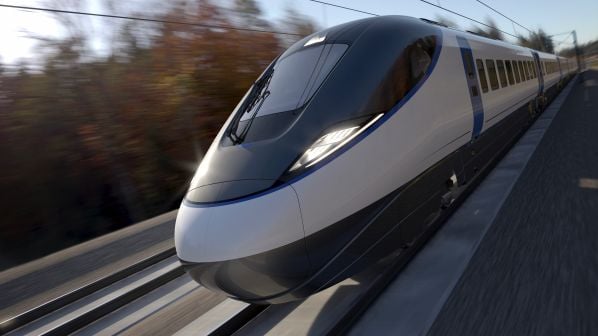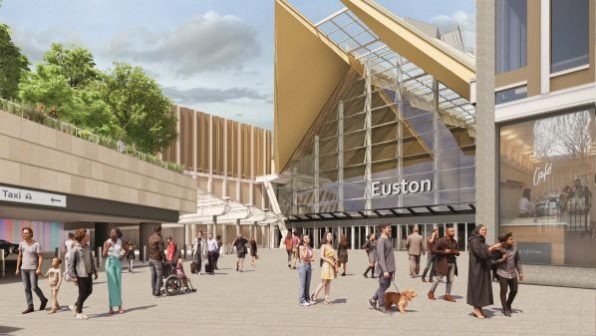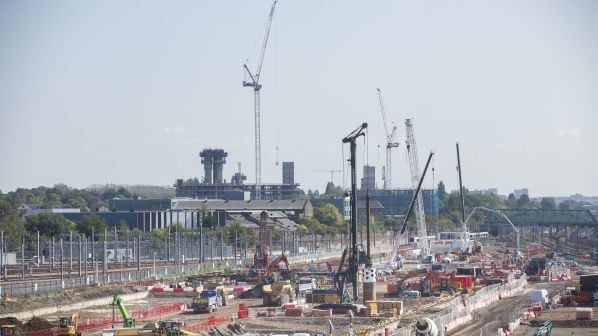SCRAPPING the Birmingham - Manchester Phase 2 of the HS2 high-speed line is simply unnecessary and will squander the benefits of Phase 1 currently under construction between London and Birmingham, says Mr Darren Caplan, chief executive of Britain’s Railway Industry Association (RIA).
Caplan says that many of RIA’s members from within the railway supply sector will be “extremely disappointed” by the cancellation of Phase 2 as announced by prime minister, Mr Rishi Sunak, on October 4.
“The government cites cost as its main reason for scrapping Phase 2, yet it should be remembered that this was the government’s own scheme, built to its own specifications, and that the chopping and changing of the scope and timing of the project - adding considerable cost and delay - was entirely of the government’s own making. Every time the scheme is rescoped it increases the cost.”
He adds that the government’s “nuclear option” of cancelling Phase 2 is “defeatist” while sending “a terrible signal” to potential overseas investors that Britain “simply cannot deliver large national transport infrastructure schemes.”
According to Caplan, the implications of plans to save £6.5bn on the construction of the high-speed line’s central London terminus by handing the project over to a new Euston Development Zone are particularly unclear for companies holding existing contracts.
“Already, multinational railway businesses will be making plans to rationalise their workforces and investments in a way that will be detrimental to the country’s rail supply sector,” he says, as well as to the wider British economy.
Cancelling HS2 Phase 2 also “blows a hole” in both the government’s levelling up agenda to spread development and investment more widely outside London and southeast England and its plans to decarbonise transport and the wider economy.
Caplan says that none of the regional rail investment schemes announced on October 4 will have the same impact as building HS2 in full.
Looking ahead, the RIA chief executive says that the government needs to safeguard the full HS2 route “for future generations” and include a bill in its forthcoming legislative programme that will be announced in the King’s Speech next month.
He says that the government also needs to rebuild trust with the railway industry, given the cancellation of Phase 2 and the eastern leg of HS2 to Leeds before it, as well as the decision to postpone work between Old Oak Common and Euston.
Rebuilding trust would include providing reassurance that the £36bn investment promised in regional projects such as the Midlands Rail Hub and electrification of the North Wales Main Line will indeed go ahead.
Further reaction
For his part, Mr Andy Bagnall, chief executive of Rail Partners, says that “a decision of this magnitude will have consequences felt for generations by the rail industry, its supply chain, passengers and freight customers.
‘While reinvestment in other regional rail schemes is a significant consolation, the decision to reduce investment in rail and divert funds to road schemes feels counter-intuitive as we look to attract people to move away from carbon-intensive modes of transport.
“The cancellation of the northern section means less capacity for rail freight and ultimately more lorries on our roads, with businesses seeking to decarbonise their supply chains limited in their options to move good off the roads and onto rail,” Bagnall says.
“The cancelling of the northern leg of HS2 is naturally disappointing,” says Lord Patrick McLoughlin, chair of Transport for the North (TfN). “It’s undeniable that this will be seen by many as a missed opportunity for the region, and the country as a whole.”
“The announcement of investment in the region is obviously welcome,” he says, adding that TfN will be looking to work with the government to fully understand the implications for northern England of the investment proposals announced on October 4 and determine “the best way forward in light of this new change of policy.”
“There are still quite a few areas that require further clarification from the Department for Transport, which we will be seeking from them,” McLoughlin says.
Sir John Peace, chairman of Midlands Connect, says his organisation is “disappointed and disheartened” by the prime minister’s announcement. “We must work at pace to deliver HS2 Phase 1 all the way to Euston,” he says, adding that “there are also lessons to be learnt from the HS2 story so far.”
Following the government’s announcement that it would fund the Midlands Rail Hub and other programmes in the region, Midlands Connect is now calling for “for more detail on timescales and a plan of action, and asking for a high-level urgent meeting with ministers, to ensure these plans and the benefits for the Midlands are delivered as quickly as possible.”
The High Speed Rail Group (HSRG) describes the decision to cancel HS2 Phase 2 as “a devastating blow to our industry and our whole economy.”
“For 15 years we have worked with the government to develop this project - their project - taking it from a concept to construction. Companies have invested in people, skills and equipment on the back of it with some even relocating in anticipation of it being completed.”
“It is true the costs of the project have risen over those 15 years,” HSRG says, pointing out that inflation has been “rampant” in the British economy and has impacted the construction sector far more than most.
“But the principal cause of any real-term cost increases lies in the chopping and changing of the project’s scope,” HSRG says. “As any project manager will tell you, the cheapest way to deliver is against a fixed scope without constant changes."
The group describes the decision to scrap Phase 2 as “the biggest and most damaging U-turn” in the history of British infrastructure. “What we have now is a plan for a railway that will not deliver the transformational benefits the north of England needs,” HSRG says.
Not building new infrastructure all the way to Manchester is “a recipe for disaster,” it says. High-speed services joining the existing network at Birmingham will create a huge bottleneck, making rail connectivity to northern England worse than it is today.
“That's why it is inconceivable that HS2 will not eventually reach Manchester,” says HSRG. “Today the industry recommits to delivering the first phase as efficiently as it can, whilst continuing to make the case that this should be just the beginning of a network that reaches Manchester, Leeds and many more cities.”




